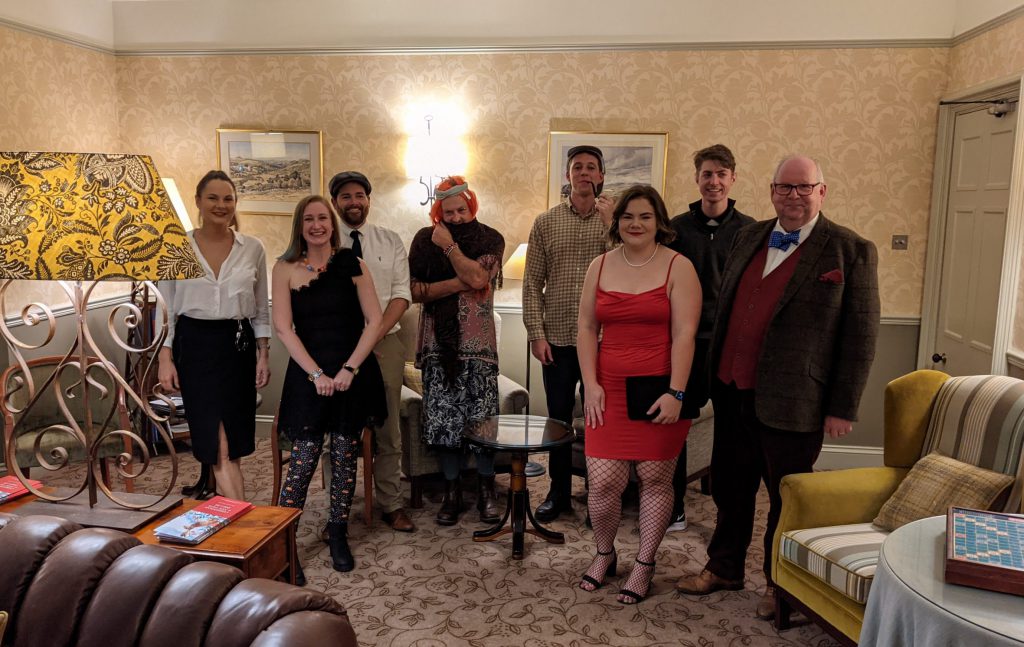After our blog about improving staff wellbeing in schools, we thought we’d like to share how we are looking after our own staff wellbeing at Paritor.
When you’re working with external companies it’s important to know how they treat their staff, as their staff attitude and ability to help you may be dependent on the way they’re treated and supported within their own roles.
We thought it would be helpful to illustrate how seriously we take the wellbeing of our Paritor staff, having made some drastic changes in the last year to our policies.
Work Life Balance
We have reduced our working week from 37.5 hours to 35 hours and introduced flexitime so that those 35 hours can be completed anytime between 6 am and 8 pm around the their personal commitments during that week.
We have given the team the freedom to make appointments avoiding the rush, take afternoons off without cutting into their precious holiday allowance and generally work when they’re feeling productive through the week. If you personally find you achieve more in the morning, start at 8 and finish early every day. If a midweek break might help, take a Wednesday afternoon off.
We have found, since losing over 20 hours of working time a week, there has been no reduction in the productivity of our team. This is in line with the findings from Autonomy that there is no positive correlation between productivity and the number of hours worked per day.
Recently there have been multiple news reports on the trial of a 4 day week across the UK. There is evidence of improved productivity which counteracts the reduction in working hours. With improved rest and work-life balance, employees have more capacity to work smarter not harder, by spending time more effectively in their reduced working hours. That’s certainly what we have found so far at Paritor.
Breaks

Humans are not built to concentrate at a computer for long stretches of time, we encourage breaks above the legally recommended norm and our staff often take long breaks when there’s a tricky software issue to mentally decipher.
From the Importance of Taking Breaks:
Studies have found that breaks can reduce or prevent stress, help to maintain performance throughout the day and reduce the need for a long recovery at the end of the day
We treat our employees like the conscientious adults that they are and allow them to plan their day around their personal attention patterns to get the most out of their day.
The Paritor team can take their lunch break anytime from 11:30 to 2:30 and take as long as they want or need, using their flexitime to work earlier or later to accommodate. We’ve had quite a few team members use this time to visit the gym while it’s quiet or take the dog to the beach over the winter, as it’s much too dark after about 3 pm!
It’s much more important to achieve what you are trying to accomplish than to be chained to a desk for the duration of your shift, if the thinking that you need to do around a problem doesn’t require a screen, then it’s time for a walk. If you’re feeling burntout from a heavy morning of work then take an extended lunch and come back fresh in a few hours.
Appraisals
We’ve implemented a quarterly check-in, but we don’t review our staff for their performance, we want to review their experience of working at Paritor. More often than not, we find any late projects or reduced performance are not due to the individual but an unforeseen complexity or interdepartmental complication.
We use the quarterly check-ins to check nothing is hindering their project progress, whether they would like any training or support, how they are feeling and whether their role is still going in the direction they’d hoped.
With developing software, as with any large project, things do not always go as planned. Individuals can’t be held accountable for the progress of something which is out of their control, but they were hired to make as much progress as they can and we simply check-in to ensure we are facilitating them as much as possible.
We hope to motivate our staff by involving them in company-wide discussions and giving them the support and tools they need to complete interesting tasks, rather than inciting fear by putting their efforts out of context and under a microscope every 3 months.
Team Activities
We work remotely most of the time but have found it’s important to meet up when we can and spend a day reviewing where we are, where the company is going and how we plan to get there. Making sure everyone is on the same page is important when you don’t sit in a room together each day.
When we meet we also share a meal as a team, talk about things other than work and get a chance to check in with one another as people. Sometimes we have the whole team and sometimes we meet in smaller groups for specific projects.
We go on away trips every so often with the full team and spend two days working together, with socialising in the evening in between. We enjoyed a murder mystery game in the evening on our last overnight trip.
To work as a team we feel it’s important to bond and do things other than work. It’s something to talk about beforehand and after as well as enjoy whilst we are there. Costumes for the murder mystery were a topic of much entertainment for weeks beforehand but nothing prepared us all for Paul’s costume as ‘Misty Visions’ the psychic!

When you work in an office together every day you will have chats while making the tea or trips to the pub after work, perhaps dragging a colleague to your gym for a trial or a group of you taking up paddle boarding. As we all live a reasonable distance from one another it’s more difficult for these sporadic team building activities to happen, so we try as a company to facilitate them as much as we can.
Wellbeing at Paritor
The most important thing about our approach to staff wellbeing is that it’s going to keep changing. There is no right answer, there are only positive steps in the right direction which you take and then review.
We have trialled casual leave days, often called duvet days, which work for many companies in the tech sector, but we found the last minute need for cover can be tricky with a small team. We’re going to convert those extra days into additional pre-booked holiday days instead, as that will work better for us, but we have learnt from trialling it what doesn’t work for us.

We hope to keep decreasing the hours of work and keep increasing the productivity of our team, and we hope to one day soon have the option to go into an office once a week rather than meeting once every month or so. We also want to improve benefits like parental leave and sick pay for our employees.
Our employee wellbeing is important to us, and we intend to keep developing our strategies for the best work-life balance we can get. The happier our staff are the better for everyone at the company and the people that we work with!
